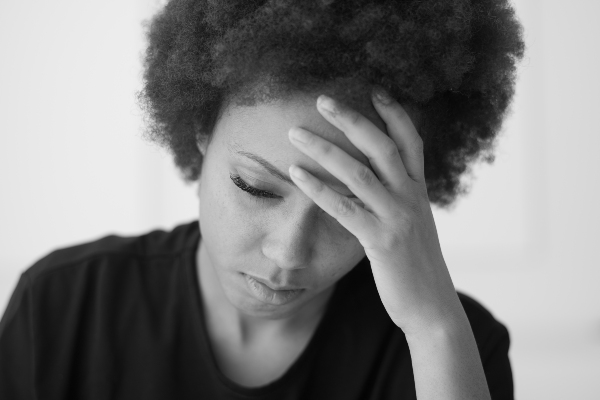 Cognitive behavioral therapy (CBT) can help treat a range of mental health concerns. Among the most common conditions that CBT helps treat is depression. This guide looks closer at what CBT involves and how it can help alleviate depression symptoms.
Cognitive behavioral therapy (CBT) can help treat a range of mental health concerns. Among the most common conditions that CBT helps treat is depression. This guide looks closer at what CBT involves and how it can help alleviate depression symptoms.
A guide to cognitive behavioral therapy for depression treatment
There are many forms of depression treatment. Most treatment plans involve a combination of multiple treatments. Perhaps the most common type of depression treatment is cognitive behavioral therapy, which mental health professionals often recommend along with prescribed antidepressants. Let us take a closer look at CBT treatment for depression.
What is cognitive behavioral therapy?
Cognitive behavioral therapy, or CBT, is a form of psychotherapy that psychiatrists use to help treat depression and other mood and anxiety disorders. CBT is also a form of talk therapy, and each treatment session involves a one-on-one discussion with a licensed psychiatrist. There are multiple goals of cognitive-behavioral therapy, such as:
- Identify the likely causes of depression.
- Determine the triggers of depression.
- Develop daily coping mechanisms.
- Find the right support from loved ones.
- Put in place a plan for a happy and complete life.
What are the benefits of cognitive behavioral therapy?
Cognitive-behavioral therapy is incredibly beneficial for many who are dealing with chronic depression. The benefits vary for each person. However, commonly reported benefits include:
- Helps increase self-esteem.
- Helps develop coping methods.
- Allows for a more logical viewpoint.
- Provides patients with hope.
CBT is also entirely confidential, so what the patient discusses stays between the patient and the psychiatrist. In addition, unlike many other depression treatments, CBT is completely safe with no adverse health risks or side effects.
When is cognitive behavioral therapy recommended?
Psychologists recommend cognitive-behavioral therapy for patients with depression who have not been able to improve their symptoms by improving their lifestyle or diet. Professional treatment, starting with CBT, is usually recommended in this case.
CBT is also usually recommended along with medications such as selective serotonin reuptake inhibitors (SSRIs) as well for a comprehensive treatment plan. Other methods of treatment that may be involved with the treatment plan include alternative therapies (i.e., art therapy), group counseling, family counseling, an exercise and diet program, massage therapy, tai chi, and yoga (among numerous other possibilities).
How long does it take to see results from cognitive behavioral therapy?
The results from CBT as a depression treatment vary. Some patients with depression report a noticeable reduction in their symptoms within the first few visits. However, CBT may take longer to produce results for many other patients. Trust the CBT process and stay patient. Most people who follow the session schedule see desirable results.
Are you considering CBT for depression treatment?
Cognitive-behavioral therapy is a great way to determine the underlying causes of depression, identify potential triggers, and learn and develop coping mechanisms. Contact our psychiatry team to schedule an initial consultation session to learn more and get started with depression treatment with cognitive behavioral therapy.
Request an appointment or call Christies Family Health LLC at 832-915-1818 for an appointment in our Houston office.
Related Posts
Depression treatment aims to help restore your mental health, but not all cases of depression respond to typical antidepressant medications. Treatment-resistant depression is a significant condition that can be difficult to manage.Several treatment choices are available for people with treatment-resistant depression, including medication, psychotherapy, and brain stimulation therapies.Several types of medications can help treat depression,…
Depression affects approximately 19.4 million adults in the United States alone (according to the National Institute of Mental Health). This equates to nearly 8 percent of the U.S. adult population. Unfortunately, many cases of depression are left untreated. Therefore, a psychiatric assessment from a licensed psychiatrist is an integral first step to a depression diagnosis…
Depression is a mental health disorder that can cause sadness, apathy, mood swings, and a range of other symptoms. There is no known cure for depression. However, many patients see their symptoms diminish or can even eliminate them entirely with the right depression treatment plan.Depression treatment looks different for every patient. In most cases, treatment…







